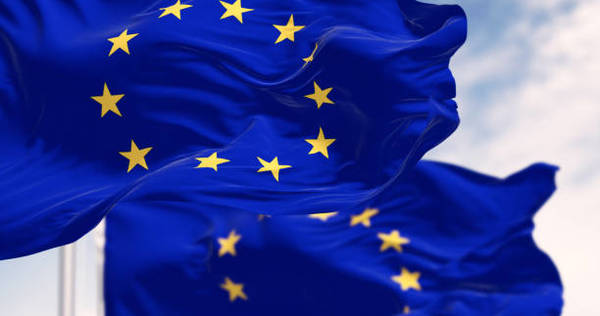MEPC 83: European Commission welcomes IMO’s draft framework
The European Commission (EC) has expressed support for the draft framework approved at the IMO last week, calling it a meaningful step towards "reducing the environmental impact of the shipping industry on a global scale.”
 IMAGE: Close-up of the European Union flags waving on a clear day. Getty Images
IMAGE: Close-up of the European Union flags waving on a clear day. Getty Images
The International Maritime Organization’s (IMO) member states on Friday approved a deal for a two-tiered greenhouse gas (GHG) intensity reduction framework.
Under the agreed draft, ships will be required to gradually reduce their well-to-wake GHG fuel intensity (GFI) starting in 2028. The reduction targets are based on 2008 levels, with a benchmark set at 93.30 grams of CO2-equivalent per megajoule (gCO2e/MJ).
The EC has supported the agreement despite week-long negotiations failed to reach a consensus on a flat-rate levy. “While today's [Friday] agreement does not yet ensure the sector's full contribution to achieving the Paris Agreement goals, it constitutes a strong foundation for starting the required energy transition of shipping,” the EC said in a statement.
The GHG fuel intensity (GFI) reduction targets will become increasingly stringent over time, ranging from 4–17% in 2028 to 30–43% by 2035. The Marine Environment Protection Committee (MEPC) is set to revisit and potentially tighten the targets for the 2036–2040 period at its 2032 session.
As per the draft, the base emissions reduction goal is expected to reach 65% by 2040. Ships that fail to meet the targets will be required to offset their excess emissions through the framework’s two-tier compliance mechanism.
The commission noted that the new measure, which includes a pricing mechanism for emissions will “encourage shipping companies to use the cleanest fuels and technologies early on.”
The pricing mechanism will apply to a portion of international shipping emissions from 2028, starting at a rate of $100/mtCO2e. This will raise between $11-$13 billion/yr, the EC estimates. These funds will be directed toward scaling up the production and deployment of cleaner marine fuels, while also supporting a fair transition for all economies.
European Community Shipowners Association reacts
The European Community Shipowners Association (ECSA) said the IMO’s agreement is not perfect but “a good starting point” to accelerate shipping’s transition towards net-zero.
“Shipping will be the first sector to have a globally agreed carbon price. It is key that multilateral cooperation at UN level delivers concrete action in times of increasing uncertainty, to achieve the 2050 net zero emissions target,” Sotiris Raptis, secretary general of ECSA said.
By Aparupa Mazumder
Please get in touch with comments or additional info to news@engine.online





